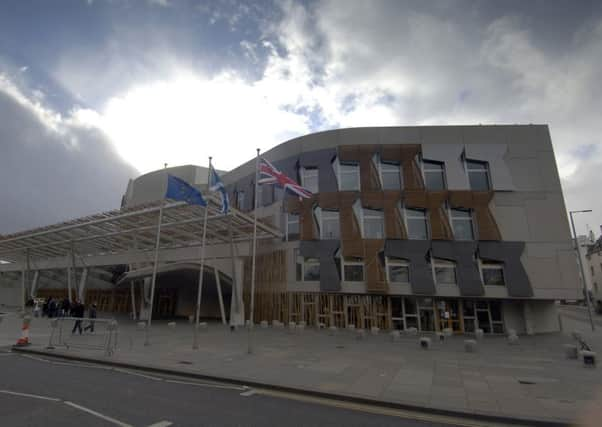Leader comment: Party leaders should all take heed of MSPS' call for respectful debate


We don’t yet know if there will be a second independence referendum, but there is no mistaking that the kind of debate we had before the first vote in 2014 is well under way again, and it is dominating the run-up to the local council elections on 4 May, despite the constitution being the unlikeliest of local issues. At least, that used to be the case. Now, canvassers find it is one of the main topics of conversation on the doorstep.
If the 2014 campaign was let down by disrespectful attitudes and abuse of opponents, we would have hoped that lessons had been learned. So far, however, the early indications suggest that the bickering and haranguing which disfigured debate are present once again and, if left unchecked, could be even worse than the last time.
Advertisement
Hide AdAdvertisement
Hide AdIt’s a bewildering phenomenon. No campaigner is going to make an opponent think again by abusing him or her, and no wavering observer is going to be impressed by such conduct. Disrespect is self-defeating.
Our politicians should know that. And yet we have had examples over the past week, from senior elected representatives on both sides of the divide, of the kind of accusations that can only demean what we like to think of, grandly, as the national conversation.
Debate over Scotland’s future is divisive enough without hurling insults at each other, whether we consider our remarks to be offensive or not. If people take offence at what has been said, then the chances are that it was offensive.
But to achieve a better standard of debate, the lead has to come from politicians themselves. We have been let down on this front lately.
So it is with some relief that we hear a group of five Lothian MSPs, including Labour leader Kezia Dugdale, have signed up to a formal pledge aimed at ending “unhelpful polarisation” in political debate. As part of that, the MSPs have pledged to tone down their exchanges at Holyrood to adopt a more respectful approach.
This is a bold but admirable move, because in the heat of a Holyrood debate, it will require self-restraint to think of tone before delivering a swift response to an opponent. But their willingness to try is encouraging, and their resolve should be applauded and aspired to by others.
In such polarised times, a cross-party agreement of any kind is an achievement, so we salute those who have put their names to this agreement.
This may be wishful thinking, but it is to be hoped that this agreement might make others take notice.
Advertisement
Hide AdAdvertisement
Hide AdThe tricky part now is to see it through. However, party leaders could lend a significant hand by reprimanding those who cross the line. A failure to condemn offenders will undermine the spirit behind this joint attempt to tackle an embarrassing and damaging climate of contempt.